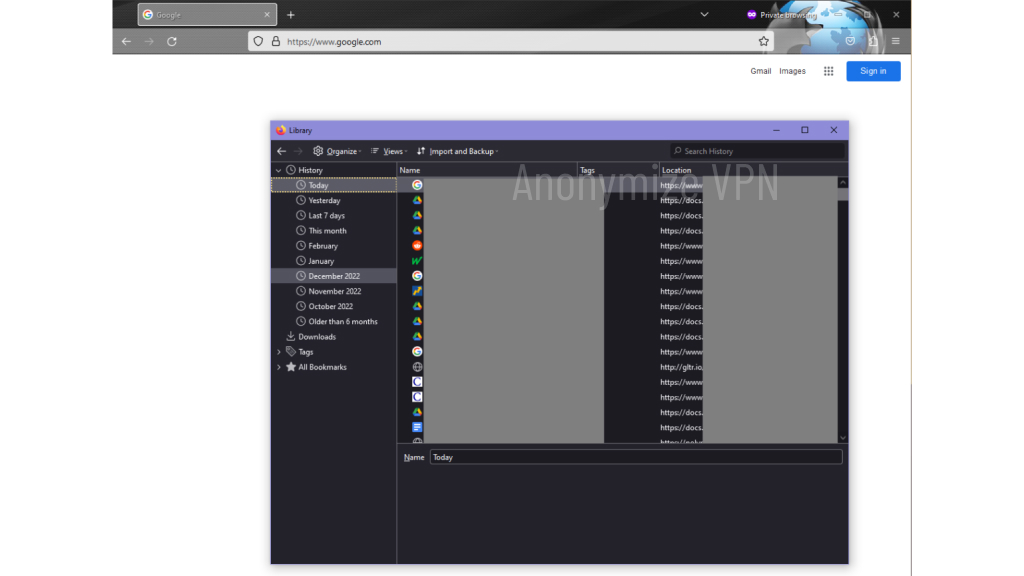VPN Hardware VS VPN Software, Which one is The Best?
Your online privacy and security are under constant threat in today’s digital world. Whenever you are connected to the internet, your data and browsing activities are at risk of being seen by prying eyes. One of the best ways to protect yourself online is to use a virtual private network or VPN. The benefits of using a VPN helps keep my online activity private and secure. Regarding VPN, you have two options to choose from: hardware VPN or VPN software. As a tech-savvy user concerned with internet security, you need to determine which solution is right for your needs. VPN hardware and software have their pros and cons when it comes to security, performance, compatibility, and cost. This article will compare hardware VPNs versus software VPNs to help you make an informed decision and choose the VPN solution that gives you the best value and protection
VPN Hardware: Dedicated VPN Appliances
VPN hardware, or dedicated VPN appliances, offer some key benefits over VPN software solutions.
- Robust security. VPN appliances are purpose-built for establishing and managing VPN connections. They offer advanced security features like firewalls, malware detection, and encryption that help protect your network.
- High performance. VPN appliances are designed specifically for managing multiple VPN tunnels and encryption, providing faster speeds and the ability to handle more connections than a generic server running VPN software.
- Simple to deploy and manage. VPN appliances typically have an easy-to-use web interface and require little technical expertise to get up and running. They also often include management tools that allow you to configure, monitor, and troubleshoot the device with minimal effort.
- Always-on reliability. VPN appliances are dedicated devices that provide constant uptime and connectivity. There are no operating system updates or software installations to interrupt service. These robust appliances help ensure your VPN is available whenever you need it.

While VPN software can work well for small deployments, VPN hardware is the superior choice for most businesses. The advanced functionality, security, performance, reliability, and simple management of VPN appliances make them the ideal option if you need to support many connected devices or mission-critical connectivity. Investing in dedicated VPN hardware helps ensure you have a solution that can scale with your needs over time.
VPN Software: Installing VPN on Windows, Mac, Linux
Installing VPN software on your Windows, Mac, or Linux device is typically straightforward. However, there are a few key steps to keep in mind:
- Select a reputable VPN provider. Do some research to find a provider that offers strong encryption, a no-logging policy, and software that is compatible with your operating system. Popular, trusted options include ExpressVPN, NordVPN, and Private Internet Access.
- Create an account and download the VPN software. You’ll need to provide an email address and payment information to set up an account. Then, you can download the VPN software directly from the provider’s website. The software should work on Windows, MacOS, and Linux.
- Install the VPN software and launch the app. Follow the on-screen prompts to install the software. Once installed, you may need to enter your account credentials to log in. The VPN app icon should appear on your desktop or in your app menu.
- Connect to a VPN server. In the VPN app, you’ll see a list of server locations. Select a location and the app will connect you to that server, encrypting all of your internet traffic and masking your IP address.
Using VPN software on your device provides an added layer of security for all of your online activity. By installing software from a reputable provider and properly connecting to VPN servers, you can rest assured that your sensitive data and personal information will remain private even when using public Wi-Fi networks. The extra step of downloading software is well worth the effort for peace of mind and protection.
Speed and Reliability: Hardware VPNs vs Software VPNs
Speed
When it comes to speed, hardware VPNs have a distinct advantage over software VPNs. Hardware VPNs are purpose-built devices with dedicated processing power designed specifically for encrypting and routing network traffic. Software VPNs rely on a general computing device like a laptop to run the VPN software, which has to compete for resources with other running programs and processes. This can significantly impact your network speeds. While a software VPN may be fine for basic web browsing and streaming, hardware VPNs are better equipped to handle data-intensive tasks without buffering or lag.
Reliability
Hardware VPNs are also typically more reliable since they have a single function – to keep your VPN connection secure and consistent. Software VPNs running on a standard computer or mobile device are more prone to crashes, freeze-ups or connectivity drops due to software updates, low memory, malware infections or other issues that can disrupt the VPN service. A dedicated VPN appliance is less likely to experience these kinds of disruptions, resulting in a more stable and dependable VPN connection.
Security
When configured properly, both hardware and software VPNs can provide strong security for your network traffic. However, hardware VPNs may have a slight edge here as well. With a hardware VPN, your data is encrypted before it even reaches the general network, adding an extra layer of protection. Hardware VPNs also typically offer more advanced security features like built-in firewalls, malware detection, and protection against DDoS attacks. Some high-end hardware VPNs provide encrypted storage for keys and passwords as well as tamper-resistant enclosures.
In summary, while software VPNs have their advantages in cost and convenience, hardware VPNs are superior in the areas of speed, reliability, and security – especially for business or commercial use. For the best performance and protection, a hardware VPN is worth the investment.
Related Article : Protect Your Website! 5 Tips For Securing Websites
Ease of Use: Comparing Setup and Management
When evaluating VPN hardware versus VPN software, ease of use is an important factor to consider. Both options require configuration to set up the VPN, as well as ongoing management to keep it running optimally.
Setup
Setting up VPN hardware typically requires installing a physical appliance on your network. This may require cabling the device, assigning it an IP address, and configuring your firewall to allow VPN traffic. VPN software is installed directly on devices like computers, routers, and mobile phones. The setup process for software usually only takes a few minutes to download, install the app, and enter your account credentials to connect.
Management
Managing VPN hardware is done through a web-based interface or command line interface. Tasks include applying software updates, changing security settings, adding new VPN tunnels, and monitoring bandwidth usage. VPN software is also managed through an interface, either on the device itself or via a web portal. However, the smaller scale of software may require fewer ongoing changes once the initial configuration is complete.
Ease of Troubleshooting
Troubleshooting VPN hardware issues can be more complex, and may require advanced networking knowledge to diagnose and resolve problems. VPN software problems are often easier to fix, as they are confined to the individual device. Resetting the app or reinstalling it are straightforward first steps, and support resources can walk you through additional troubleshooting if needed.
In summary, while both VPN options require initial setup and ongoing management, VPN software is generally simpler to get started with, easier to manage and maintain, and less complicated to troubleshoot if issues arise. For most individuals and small businesses looking to enable VPN access, software provides an very accessible solution. However, for large organizations or networks with many VPN tunnels and lots of bandwidth, dedicated VPN hardware may be better suited to handle the load while still being efficiently managed.
Cost Comparison: VPN Hardware vs VPN Software
Initial Cost
When it comes to initial costs, VPN hardware typically has a higher upfront cost than VPN software. Quality VPN routers, firewalls and other dedicated hardware can cost between $200 to $10,000 or more, depending on the size and features. VPN software, on the other hand, typically has an annual subscription fee between $5 to $30 per month. Some popular VPN services with software for Windows, Mac, Android and iOS include NordVPN, ExpressVPN, IPVanish, and Private Internet Access.
Ongoing Costs
In addition to the initial purchase price, VPN hardware has ongoing costs like software licenses, configuration and management fees, and hardware maintenance or replacement costs. VPN software typically only has an annual or monthly subscription fee as the ongoing cost. Some VPN services offer discounts if you pay yearly instead of monthly.
Scalability
For a small team, VPN software is typically easy to set up, scale and manage. As a company or organization grows, VPN hardware may become necessary to handle the additional bandwidth and connection demands. VPN routers, firewalls and other dedicated hardware solutions are designed to support many simultaneous VPN connections for larger deployments.
Ease of Use
In general, VPN software tends to be more user-friendly for individuals and small teams. The interfaces are typically simple to set up and manage VPN connections and most don’t require any advanced networking knowledge. VPN hardware, on the other hand, often requires technical expertise to configure and manage. For larger organizations, a dedicated IT team is usually needed to properly set up and maintain VPN hardware.
In summary, while VPN hardware may provide more robust security and performance for larger deployments, VPN software is typically more affordable, user-friendly and suitable for most individual and small business needs. For many, a combination of VPN software and hardware solutions may provide the right mix of security, functionality and cost-effectiveness.




